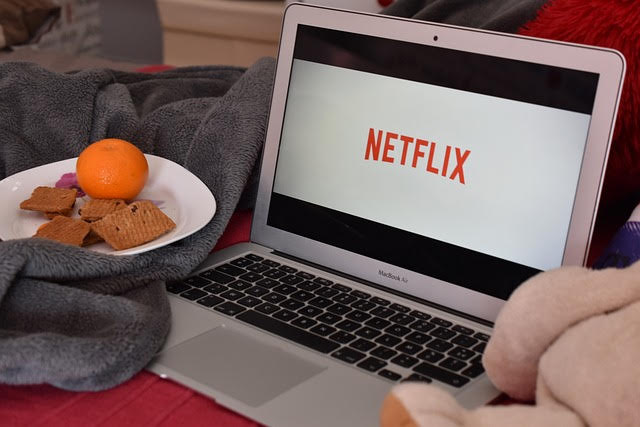June/July: Don’t Miss These Wisdom Nuggets!
Happy Summer to you! I hope you aren’t sweltering too badly. It is brutal. I’d be remiss as a health coach if I didn’t advise you to pay extra attention to your hydration, nutrition, and rest (all the time, but particularly when physical conditions are this brutal!). Welcome to my combined June-July issues. Enjoy your breaks, travel, and hopefully some rest! 






𝕀 𝕙𝕒𝕕 𝕥𝕙𝕖 𝕘𝕠𝕠𝕕 𝕗𝕠𝕣𝕥𝕦𝕟𝕖 𝕠𝕗 𝕒𝕥𝕥𝕖𝕟𝕕𝕚𝕟𝕘 𝕒 𝕧𝕚𝕣𝕥𝕦𝕒𝕝 𝕔𝕠𝕒𝕔𝕙𝕚𝕟𝕘 𝕔𝕠𝕟𝕗𝕖𝕣𝕖𝕟𝕔𝕖, 𝕒𝕟𝕕 𝕀 𝕨𝕒𝕟𝕥 𝕥𝕠 𝕤𝕙𝕒𝕣𝕖 𝕒 𝕗𝕖𝕨 𝕥𝕙𝕠𝕦𝕘𝕙𝕥𝕗𝕦𝕝 𝕒𝕟𝕕 𝕠𝕔𝕔𝕒𝕤𝕚𝕠𝕟𝕒𝕝𝕝𝕪 𝕛𝕒𝕨-𝕕𝕣𝕠𝕡𝕡𝕚𝕟𝕘 𝕟𝕦𝕘𝕘𝕖𝕥𝕤.
In no particular order:
1. Being indistractable is the skill of the century, and it is basically a superpower.
This was from Nir Eyal, author of the book Indistractable. I have just ordered it and look forward to diving in! He noted, as have I, that most of us know what we need to be doing, but we struggle do it (As a transparent example, I just paused writing this to inquire about a writing/group facilitator role requiring only a few hours a month that looked really intriguing!  ). He does note that there’s no shame or moral failing in being distracted.
). He does note that there’s no shame or moral failing in being distracted.
Most fascinating, he noted that based on his 10 years of research, that it can’t just be technology getting in our way. He noted that the dings and pings – the external notifications – only account for 10% of our distraction. The other 90% is INTERNAL. 



At the root of it all, and this is clearly an oversimplification, we need to learn the skill set to deal with uncomfortable emotions in a healthy way.He pointed out that anything we are trying to “manage” is really PAIN management. Time management is pain management. Weight management is pain management. Money management is pain management.
See the pattern? This fits 100% with my certification as a Professional Food Addiction Coach. Until we learn to deal with the uncomfortable emotion, we’re going to be distracted into doing something – whether it’s doom scrolling, eating, spending, or chatting at the water cooler – to help us avoid that discomfort.
MIC DROP.

2. In the Learning Zone, we need LOW stakes.
This came from Eduardo Briceño, in his talk on Growth Mindset: Unlocking the Performance Paradox. There were several takeaways from this one, but the small piece that most resonated with me as a coach was his point that if we want to improve, we have to change. Specifically, something he said about fear really resonated. He talked of two zones of growth – the Learning Zone and the Performance Zone. In the Learning Zone, we need low stakes. We tend to think others will think less of us if we make mistakes, so the learning zone is primarily about generating safety. We need the time and space to learn – to make mistakes safely, to experiment, to try new things, refine, and hone. In the Learning Zone, we do the things we don’t know. (The converse is the Performance Zone – where we only do the things we know well).
He gave a great example of performers in something like Cirque du Soleil. In their practices, which we don’t see (The Learning Zone), they fall, they use nets, they stumble, they get coached, rinse and repeat. This is where they learn new tricks and new acts. In the Performance Zone, which is all we see, they ONLY do things they know really well. There is confidence and ease because of the Learning Zone.
But in real life, most of us try to play it safe and stay only in the Performance Zone, doing what we know. He calls that The Performance Paradox. Without spending safe time in the Learning Zone, we never grow. Where might you see this playing out in your life?

3. If you’re not in poverty, having more money does not necessarily mean you’ll be more happy.
This was from Saundra Davis, MCC, who left a long career as a Certified Financial Planner, and now a Master Level Coach (highest credential of the Int’l Coach Federation). In coaching, one of the fundamental things we do is look at where your true values lie, and we help them align their lives around that. Money might mean choice, and you value choice (What will your life be like when you have more choice?). Money might mean security, and you value that (Who will you be when you feel more secure? How will you be different?). Money might mean status, which you may value (What will more status bring you?). Coaches help people take it a notch or two deeper than the surface level, and that opens up all kinds of doors for increased awareness about what someone really wants, and then we can explore possible avenues for getting there.

4. Feedback is only appropriate in certain situations, and asking for it needs to be done well.
This is from Dr. Liane Davey, who talked all about asking for feedback, and helped frame what feedback really is.
- Feedback is about someone’s reaction to your behavior, which boosts your self-awareness and supports informed choices.
- Feedback is NOT judgment.
- Feedback is THEIR truth, not THE truth.
- Feedback is a gift (because it’s a person being candid with you about their private thoughts and feelings).
- Feedback isn’t right for every situation (sometimes what’s needed is instruction, coaching, advice, requests, or evaluation, and she explained the differences).
- Most requests for feedback are delivered poorly (e.g., too generic; after the fact; the situation is not safe for feedback, resulting in our feeling attacked, judged, or adversarial, and these states shut down learning).
She also pointed out that especially in the corporate world, creating a culture of psychological safety allowing for feedback is the job of management and leadership. Keeping people free from harm is a leader’s job (e.g., bullying). But she noted that we need to change our own willingness to be uncomfortable. Managing emotional discomfort is OUR job, and she noted that increasingly what’s happening is that we ascribe too much responsibility to other people for what’s going on in OUR OWN heads. She noted that leadership’s obligation to provide an environment of psychological safety is not about our insecurity, imposter syndrome, or any other internal narrative. That was an eye-opener!

5. Change is about a letting go; letting go is a sacrifice. The word sacrifice has its root in the word sacred.
This was from Michael Bungay Stanier, a world renowned coach. I wrote about this in a brief LinkedIn post HERE. It’s powerful! Furthermore, someone else noted that the words SACRED and SCARED have the same letters. Change is scary, but often it’s related to a sacred issue.

I’d love your thoughts on these! Were they helpful? Did they provoke any thought? Please share your feedback about what you found helpful or what you might like more of (or what you didn’t see here that you’d like… recipes? health topics?) at [email protected]. (Notice I asked for feedback before you just “gave” it, and I was specific about what I’m asking for – how you liked this newsletter and what you’d appreciate in future newsletters). I want to offer content that’s relevant and helpful for you. My training is pretty broad. I love working around issues of emotional eating and stress management/mental fitness, but I can coach around a lot of concerns. Anything you want to change that relates to your sense of well-being is appropriate to bring to coaching.
Please share this newsletter with others if you found this helpful or enjoyable; please just attribute it to me as the author. You may also unsubscribe any time.
I have some really fun and helpful resources in the works, and the list has already expanded from what’s listed here (https://janetfrankcoaching.com/webinars-ebooks/). If you have signed up for this newsletter already, you will be notified when they’re ready. If you’re reading on at my website but have not subscribed, please do so! I’ll never spam you and I do not sell your info. But I don’t want you to miss when these resources are ready.
If you’re open to a conversation around some market research over what resources might be helpful, I’d love to pick your brain, and will have some kind of fun incentive for anyone participating! Let me know at [email protected]. If you’re willing to be part of some discussions around what resources would be helpful, please send me an email BY AUGUST 1.

Until next time, to your good health!
Janet Frank, Ph.D., A-CFHC, NBC-HWC, PFAC
National Board Certified Health & Wellness Coach
ADAPT Certified Functional Health Coach
Certified Professional Food Addiction Coach
Find me on LinkedIn



